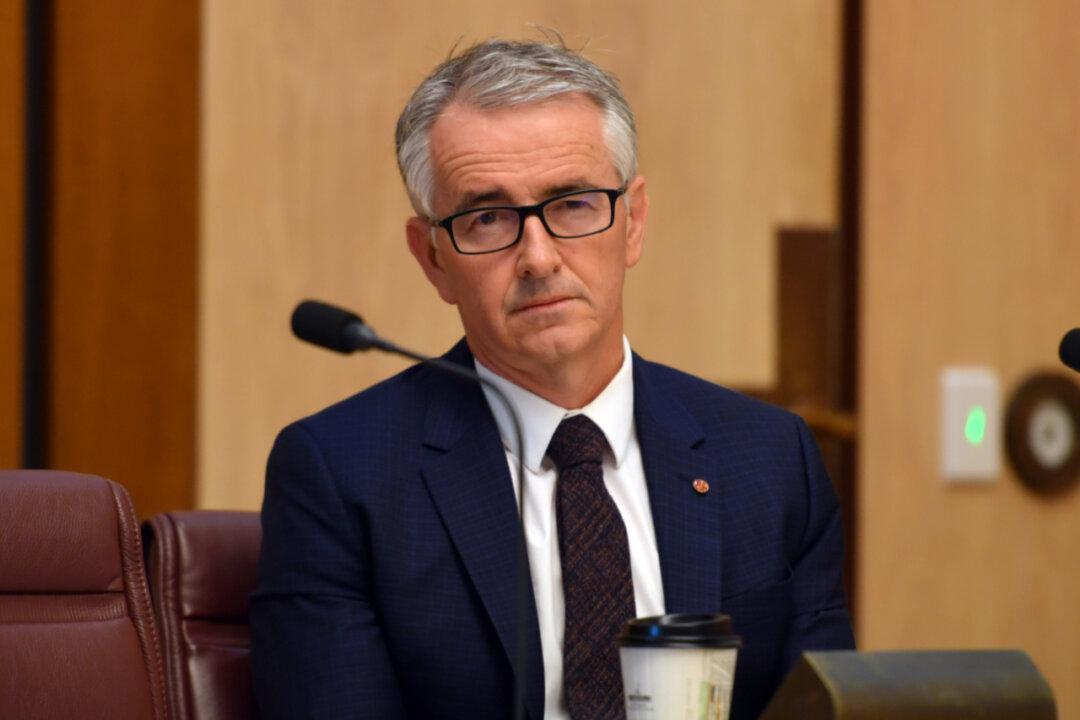
Liberal Senator Gerard Rennick during Senate Estimates at Parliament House in Canberra, April 6, 2022. AAP Image/Mick Tsikas
Queensland LNP Senator Gerard Rennick has labelled Australia’s superannuation system as detrimental to the country’s economy.
“Superannuation was the worst thing to ever happen to the economy in this country,” Senator Rennick told ADH TV on Sept. 5. 